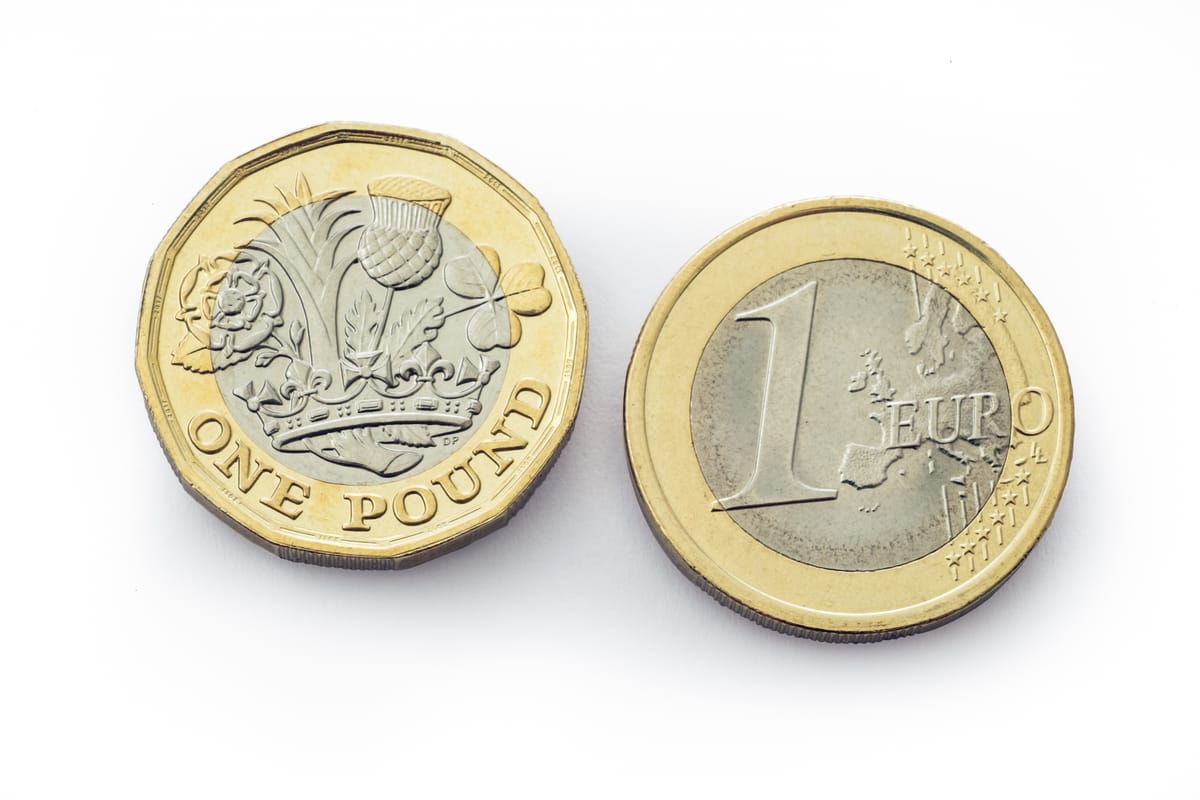GBP/EUR exchange rate week review: pound touches 7-week high versus euro
The pound rose through the 1.19 benchmark against the euro following better-than-expected data from the UK economy.

Monday
Following an initial slip, the pound euro (GBP/EUR) exchange rate regained its footing as news of a fresh UK-EU agreement surfaced, ending the session a fraction below 1.19. The deal was welcomed by investors in the pound amid forecasts that it could inject £9bn into the domestic economy.
The euro was buoyed by its negative correlation with an under-pressure dollar. Its gains were capped, however, after the European Commission downgraded its 2025 Eurozone growth forecast, referencing global trade fragmentation.
Tuesday
The pound softened into the 1.18 mid-range against the euro following rate rhetoric from Bank of England (BoE) Chief Economist Huw Pill.
Pill – who voted against an interest rate cut this month – stated that he believes the trajectory for borrowing costs remains “downward’ as the ‘underlying disinflation process remains intact”.
A significant drop in German producer prices stoked bets on further European Central Bank (ECB) interest rate cuts, causing the single currency to stumble. However, a risk-off market mood and a weakening dollar helped it to right itself.
Wednesday
The pound euro exchange rate initially firmed after the UK’s CPI for April revealed a stronger-than-expected rise in inflation. However, the UK currency arrested its gains as market analysts indicated the increase was likely prompted by temporary factors and may not alter the BoE’s downward rate path. This insight caused the pair to briefly dip as low as 1.182.
The euro continued to be supported by ongoing dollar weakness, but speculation over upcoming ECB rate cuts limited its gains.
Find out how a currency specialist can help you navigate the unpredictable currency markets.
Thursday
The pound ticked higher against the euro following a better-than-expected UK services PMI. While the print only marginally exceeded expectations and showed that activity in the sector almost stalled, it was enough to support the UK currency against the weaker single currency.
The euro was undermined by the Eurozone PMIs, which reported an unexpected contraction in private sector activity in May.
Friday
The pound edged above the 1.19 benchmark, touching a seven-week high versus the euro, after British retail sales rose more than expected in April amid warm weather. Meanwhile, the euro was undermined by threats from Donald Trump to impose a 50% tariff on all EU imports from 1 June, accusing the bloc of inequitable trade practices – a move that could hit Eurozone GDP and prompt the ECB to cut interest rates more aggressively,
The pound euro exchange rate ended the week at around 1.191.
Looking ahead
In the absence of notable data from the UK economy, a raft of figures from the Eurozone will be in focus for investors, including German inflation on Friday, which fell in April. A further decline would bolster the case for ECB policymakers seeking further interest rate cuts, which would likely dent the single currency.
Further Trump trade rhetoric could also impact the euro after the US President lashed out against the EU.
